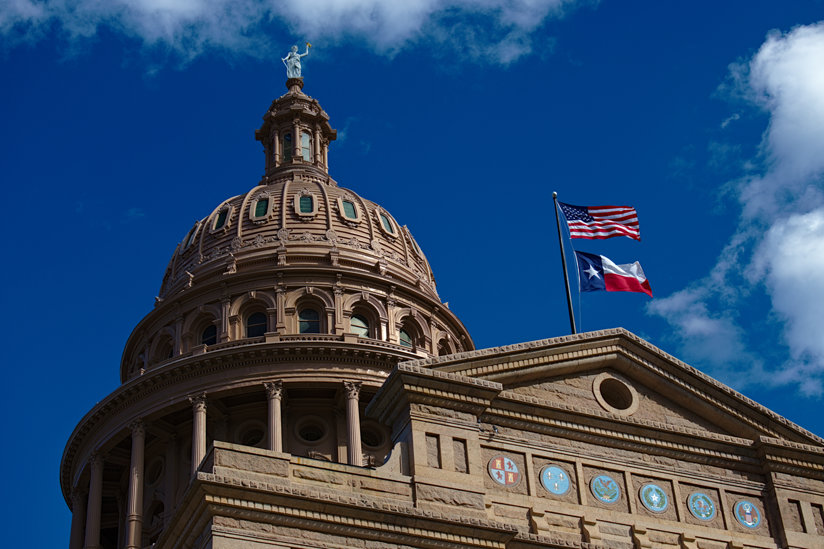
-
HOME
-
WHAT IS STANDOur Mission Our Values Our Help Contact
-
WHAT WE FIGHT FORReligious Freedom Religious Literacy Equality & Human Rights Inclusion & Respect Free Speech Responsible Journalism Corporate Accountability
-
RESOURCESExpert Studies Landmark Decisions White Papers FAQs David Miscavige Religious Freedom Resource Center Freedom of Religion & Human Rights Topic Index Priest-Penitent Privilege Islamophobia
-
HATE MONITORBiased Media Propagandists Hatemongers False Experts Hate Monitor Blog
-
NEWSROOMNews Media Watch Videos Blog
-
TAKE ACTIONCombat Hate & Discrimination Champion Freedom of Religion Demand Accountability
Texas Legislation Strips Truth & Diversity From History
“History will not go away, except through our perfect acknowledgement of it.”
— Stanley Cavell
The higherups in the Texas education system are trying to make history go away.
The state’s new “standards” have removed from the curriculum, among other things, Dr. King’s “I Have a Dream” speech; the 13th, 14th and 15th Amendments which grant equal rights and protection regardless of race; Frederick Douglass; and the 1924 Snyder Act (by which the nation recognized Indigenous citizenship).

The Texas education system’s vanishing act also includes the Fugitive Slave Acts of 1793 and 1850; the Indian Removal Act of 1830 that forced Indigenous Americans off their southeastern lands; the Emancipation Proclamation; and the Voting Rights Act of 1965. The standards also no longer include historical documents related to the civic accomplishments of marginalized populations—including documents related to the Chicano movement, women’s suffrage, and Indigenous rights—and removed, as well, the history of white supremacy, including but not limited to the institution of slavery, the eugenics movement, and the Ku Klux Klan, and the ways in which it is morally wrong, and the history and importance of the civil rights movement. The phrases in italics which are no longer a part of the curriculum are taken directly from the bill itself which was passed this summer.
The higherups in the Texas education system are trying to make history go away.
My mother taught American History at Stuart Junior High School in Washington, D.C., in the 1940s, 50s and 60s. During that time, she saw the composition of her classes shift as white students and faculty fled to the suburbs. At length, she was the only white person—faculty or student—remaining. It was an easy task to make history relevant to her students during the first 10 or 15 years she taught—all with the intention of, in her words, “creating patriots.” But as the demographics shifted, her task became tougher. The curriculum of 1943, wherein the only Blacks mentioned were a paragraph here on Booker T. Washington and a sentence there on George Washington Carver, was inadequate for her students of 1966. She searched for resources but found little. She retired, feeling she had failed her students.

With the advent of African-American studies and new scholarship and doors opening for Black history, we have an ever-expanding trove of knowledge that had been locked away until recent decades. We also have a wider view of the histories and contributions of minorities, of Asian Americans, Jews, Muslims, Hispanics, Indigenous Americans, and others whose stories help us understand what it is to be an American.
In a briefing to teachers secretly taped, a Texas school official says if you’re going to teach about the Holocaust, you must also teach “alternate opinions” about the Holocaust. The statement is greeted by loud “WHAT’s?!” and “HOW’s?!” by the teachers assembled.
When the audio clip surfaced and went viral, Texas education potentates quickly walked back the fiasco with the standard-issue, of-course-nots and it-was-all-a-misunderstandings.
But was it?
Among the resources considered “nonessential” in the Texas curriculum are the writings of George Washington. George Washington? Yes, that George Washington, who famously warned against the formation of political parties as engines of “unjust dominion.” The same George Washington who courageously took a stand against anti-Semitism at a time when it was not even a debatable question that “Jews were Christ-killers,” among other execrable things. His letter to the Touro Synagogue in Newport, Rhode Island, which predates the freedom of religion guaranteed by the Bill of Rights, is an eloquent anthem against hate: “To bigotry no sanction. To persecution no assistance.” Stirring words, but stricken from history by the guardians of Texas children’s delicate sensibilities.

The education of a culture has exactly zero to do with politics, zero to do with blame, zero to do with expediency or funding or censorship or hurting people’s feelings or stepping on someone’s toes or any of a thousand other dribbling trifles. It is all about humanity and understanding. How in the world can we understand where we’re going unless we understand where we’ve been? More importantly, how can we understand those who accompany us on that journey, unless we look at them, acknowledge them, engage and embrace them?
It may be true that history is written by the winners and re-written by the rascals, but it is most importantly studied by the innocent who, studying in innocence, trust what they study—and will, in the final reckoning, bear the responsibility as adults of where that trust has led.
My mother felt she betrayed her students’ trust because she couldn’t get the materials and resources to study. It broke her heart. The wise leaders of Texas education, however, with a plenitude of material and resources, now shut them away under legislative lock and key. They have betrayed their trust from the starting gate.
Do they even understand the consequences they’ve set in motion?
Do they care?









